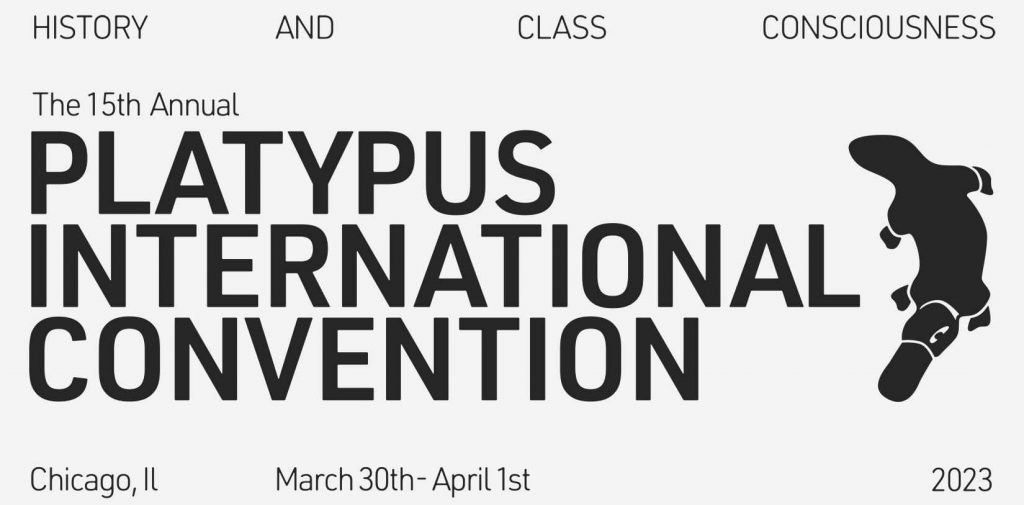
The Platypus Affiliated Society, established in December 2006, organizes reading groups, public fora, research and journalism focused on the problems and tasks inherited from the "Old" (1920s–30s), "New" (1960s–70s) and post-political (1980s–90s) Left for the possibilities of emancipatory politics today.
The Latest from The Platypus Review:
- What is the critique of capitalism?On October 8, 2022, the Platypus Affiliated Society hosted this panel at the New School, NYC as part of its East Coast Conference. The panelists were Tom Canel, D. L. Jacobs (Platypus), Daniel Lazare (CPGB, Weekly Worker), Saira Rafiee (CUNY), and Jochem Schmon (New School).
- The Left has transformed the world: An interview with Eli ZaretskyOn July 18, 2022, Platypus Affiliated Society members D. L. Jacobs and R. W. Martins interviewed Eli Zaretsky, professor of History at The New School for Social Research, about his book Why America Needs a Left (2012) and the significance of the history and legacy of the New Left for the possibility of a Left today.
Das Neueste aus Die Platypus Review:
- Auf der Suche nach einer gemeinsamen Sprache im postfeudalen ZeitalterEin Gespräch mit Vlad von der marxistischen Gruppe KyrgSoc (КыргСоц) über das Erbe der Sowjetunion in Zentralasien und daraus resultierende Herausforderungen für die kirgisische Linke.
- Hegels Dialektik: Nichtidentität, Widerspruch und FreiheitDem abschreckenden Versuch, Hegel zu verstehen, drängt sich wohl als erstes die Frage auf: Was ist die hegelsche Dialektik? Ich könnte diese mit einer Phrase definieren als „die wechselseitige Durchdringung von Gegensätzen“. Aber eine solche Definition wäre wohl wenig erhellend. Nach Adornos scharfsinnigem Einwand entzieht sich die Dialektik jeglicher Definition und lässt sich eher demonstrieren als definieren.

